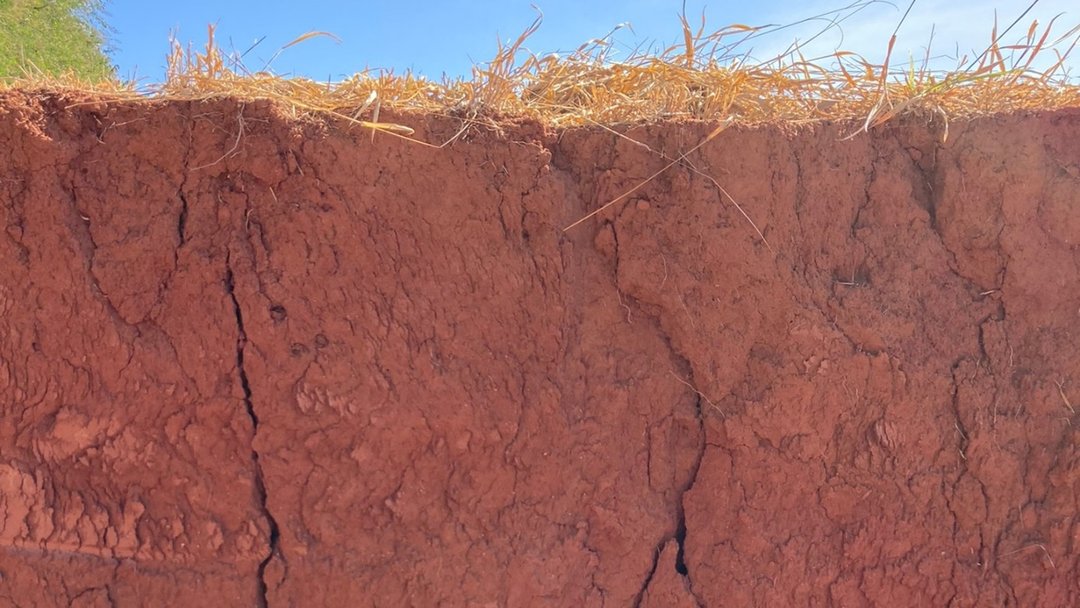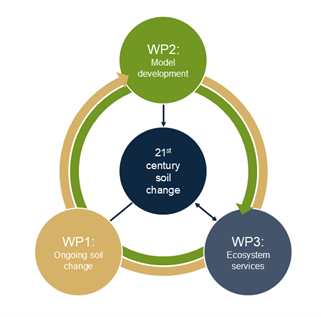TASC

Trajectories of accelerated soil change on tropical arable land (TASC)
Duration: from 2026 to 2031
Funding Institution: German Research Foundation (DFG); Emmy Noether Programme
Principal Investigator: Dr. Pedro Batista
Associate Researchers: Dr. Florian Wilken, Prof. Dr. Peter Fiener
Research topics: Soil erosion, tropical soils
TASC in a nutshell:
Soil erosion threatens the capacity of tropical soils to continuously provide food, water, and carbon-sequestration services at the global scale. However, the extent and severity of erosion-induced disturbances to soil functions in the tropics are largely unknown. TASC will fill this major knowledge gap by identifying, describing, and simulating 21st-century trajectories of erosion-induced tropical soil change, with a particular focus on intensive Brazilian agricultural systems, which are responsible for a significant share of the global food supply.
TASC is built on a combination of modern, state-of-the-art erosion measurement techniques and process-oriented environmental models with quantified uncertainty. TASC is hosted by the University of Augsburg and supported by an international team of project collaborators.

Project description:
Accelerated soil erosion on arable land creates such severe disturbances to soil systems that even so-called intrinsic soil properties can be drastically altered in relatively short periods of time. This soil change on anthropogenic timescales can compromise the ability of soils to provide crucial ecosystem services for sustaining life on land, such as food production and nutrient and water cycling. Still, there is limited knowledge regarding the extent, severity, and pathways of erosion-induced global soil change. Furthermore, the multiple on- and off-site cascading process chains triggered by accelerated soil erosion are weakly constrained by measurements and models, particularly in the tropical Global South, where agricultural soils are arguably the most threatened by socioeconomic and environmental pressures worldwide.
In particular, Brazil has undergone significant deforestation and agricultural intensification since the second half of the 20th century. The country is currently a major player in the global food trade and the world’s largest producer of soybeans, sugar crops, and coffee. At the same time, Brazil holds the largest freshwater resources and the second-largest forest area in the globe. Although Brazil’s capacity to continuously provide food, water, and carbon-sequestration services at the global scale is highly dependent on its soils, the ongoing trajectories of soil change in the country are essentially unknown.
TASC aims to fill these knowledge gaps by identifying, describing, and simulating 21st century trajectories of erosion-induced tropical soil change – and its effects on the delivery of soil ecosystem services – with a specific focus on Brazilian intensive agricultural systems, which are often regarded as a blueprint of agricultural intensification in the tropics. TASC will combine a large field campaign with state-of-the-art erosion-measurement techniques and the development of a novel model of erosion-induced soil change, specifically tailored to the tropics. This will provide the first integrated modelling framework for simulating large-scale, scenario-based trajectories of erosion-induced soil change and its cascading effects on crop production, carbon stocks, and water regulation, worldwide. Therefore, on top of increasing our understanding of neglected soil-degradation processes in the tropics, TASC will deliver fundamental, currently lacking tools for anticipating and managing erosion-induced soil change.
